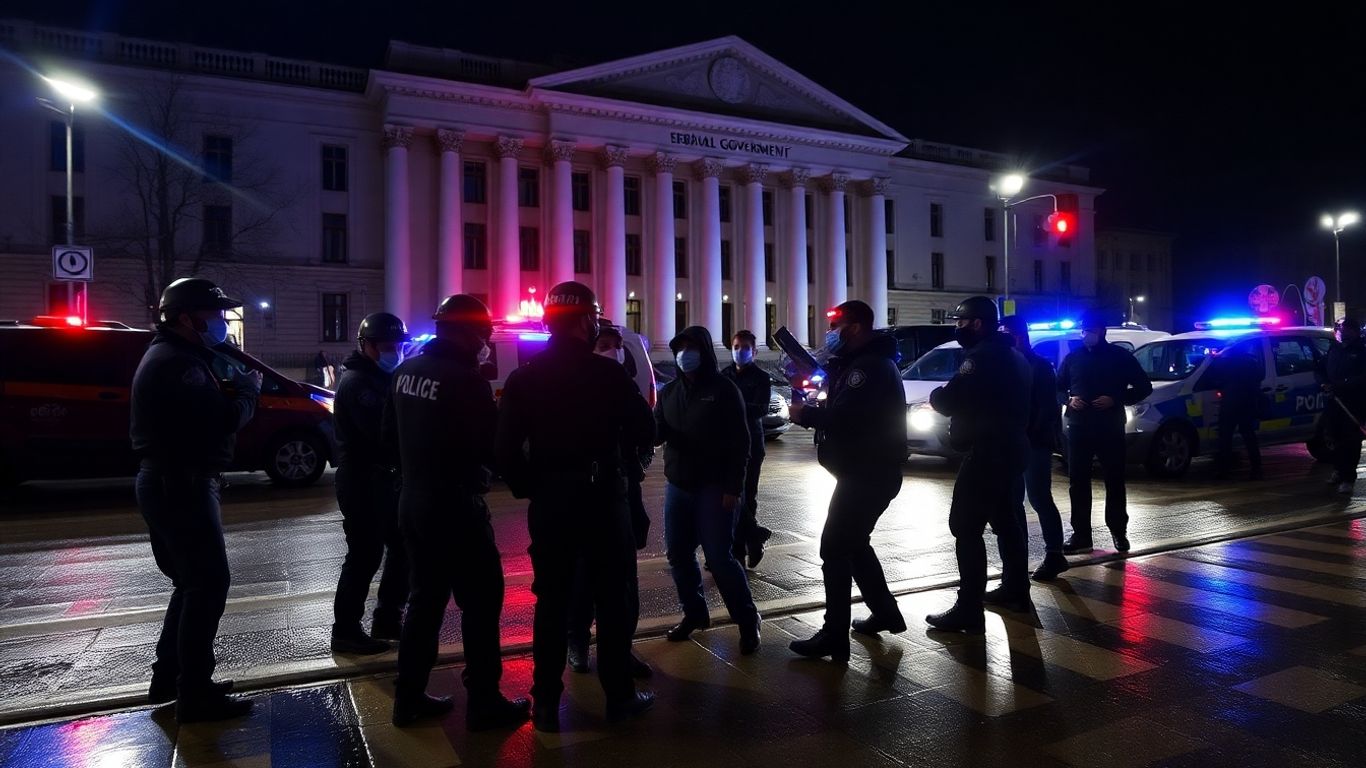Serbian police have arrested 11 individuals believed to be behind a series of highly provocative antisemitic and anti-Muslim attacks in Paris and Berlin. The suspects, alleged to have acted under the direction of a foreign intelligence service, face charges linked to incidents designed to stir religious and ethnic tensions in the wake of ongoing international conflicts.
Key Takeaways
- 11 Serbian nationals arrested for organizing hate crimes in Paris and Berlin
- Attacks included vandalism of Jewish and Muslim sites with green paint and pigs’ heads
- Serbian officials allege foreign intelligence involvement; main organizer still at large
Timeline And Details Of The Attacks
Between April and September 2025, a group thought to number at least 14 was reportedly involved in a spree of hate crimes across major European capitals. Notable attacks included:
- Throwing green paint on the Shoah Memorial, several synagogues, and a Jewish restaurant in Paris
- Leaving pigs’ heads at Muslim religious sites both in the Paris region and at Berlin’s Brandenburg Gate
These coordinated actions followed a broader pattern of antisemitic graffiti and intimidation in Europe and were widely interpreted as attempts to destabilize communities during a period of heightened tensions related to the conflict in Gaza.
Authorities’ Investigation And Arrests
Serbian officials announced that the arrests were made following a coordinated investigation, revealing that the cell’s activities were directed by a leader—identified by authorities only by the initials M.G.—who remains at large. According to the Serbian Interior Ministry, this leader was working under direct orders from a foreign intelligence agency, though the specific nation involved was not disclosed.
The arrested suspects are currently being detained in Smederevo, near Belgrade. The group is accused of seeking to propagate hatred and incite violence based on "race, skin color, religious affiliation, nationality, and ethnic origin."
Political And International Context
The investigation takes place against a backdrop of complex international dynamics. Serbia maintains close ties with Russia and has not joined European Union sanctions against Moscow. This relationship has been a point of contention, particularly as Western intelligence services have warned of attempts to foment instability within and beyond Serbian borders.
Serbian authorities emphasized that the group’s ultimate intention was to provoke further division within European societies. The case highlights growing concerns about transnational influence campaigns that exploit religious and ethnic divides for broader geopolitical goals.
What Happens Next?
With the primary orchestrator still evading capture and the full extent of foreign involvement yet to be revealed, the story remains highly fluid. Authorities in Serbia, France, and Germany continue to investigate the group’s connections and motivations, raising questions about international cooperation in combating hate crimes and foreign interference.
The detainees are expected to face formal questioning within 48 hours, as investigators pursue leads to uncover the remaining members of the network and prevent future attacks.






